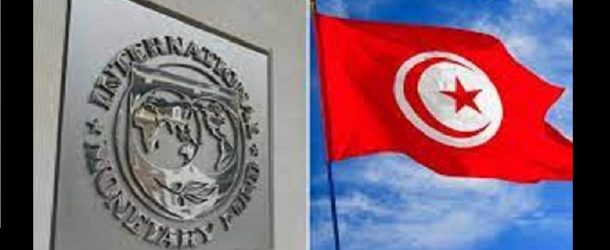Tunisian officials have reached a staff-level agreement with the International Monetary Fund (IMF), which amounts to $ 1.9 billion. This amount is to be reimbursed to the Republic of Tunisia within four years. This agreement will not only enable Tunisia to overcome its financial conundrum, which has persisted since the 2011 Jasmine Revolution, but also brings forth other external investments from international organizations such as the European Union (EU), whether the level of the common EU budget or separate initiatives from European states. Additionally, it would make Tunisia benefit from a considerable amount of assistance from The Arab Monetary Fund, The World Bank, as well as the African Bank of Investment, The European Union, and the French Development Agency.
However, one of the prominent drawbacks of the general guidelines of President Kais Saied’s regime is that it has resulted in creating a number of complications with the authorities within the International Monetary Fund. Thus, Tunisian-IMF relations have been complicated by various factors. One of the most prominent problems affecting the negotiations with the IMF is the political equilibrium within the Republic of Tunisia. Since the easing of the Parliament on July 25, 2021, political powers have been seized by the hand of the supreme position in the country, rejecting the separation of powers. This absence of equilibrium for political stability is a hindrance to moving forward positively for the country. Moreover, the official statements and speeches repeatedly emphasized by the President of the Republic indicate that resorting to the IMF is not acceptable and would bring unacceptable intervention in internal affairs for the country. The President considers that the accord with the IMF would be endowed with some clothes that cannot be acceptable in terms of sovereignty. If these accords were put into practice, this would be a severe intervention in the internal affairs of the country, detaching the sovereignty of the people on their lands. This, in turn, has resulted in the delay of the treatment of Tunisia’s dossier with the IMF twice in a row. The first delay was on December 19, 2022, because of the official speech from the Tunisian residency. The second delay, however, is not specified in the text. Actually, the agreement with the IMF has been expected to occur in the first trimester of the year 2022, but until this very moment, the agreement has not been reached yet.
Tunisia’s need for an agreement with the International Monetary Fund (IMF) stems from several factors. The state budget of the country is currently around 70,000 billion Tunisian dinars, which is roughly equivalent to 23 billion U.S. dollars. However, the taxes collected by the government fall short of covering the initial state budget, leaving a deficit of approximately 20,000 billion Tunisian dinars or about 2 billion U.S. dollars. This deficit is a significant financial burden that cannot be ignored. Reaching an agreement with the IMF is crucial because it would lend credibility to the Tunisian economy, making it easier to reach agreements with other monetary funds such as the European Union and the French Agency of Development. These agreements could provide Tunisia with the financial support it needs to overcome its current financial challenges, including a decline in the economy and devaluation of its currency. Overall, the IMF agreement is necessary to restore stability to the Tunisian economy and regain its reputation as a reliable financial partner in the international community. Regardless of whether we agree or disagree with the statements made by Tunisian officials, the harsh reality is that the country’s financial decline and currency devaluation have accumulated over the past decade due to corruption and amateurism. The decline of the Tunisian economy has caused a significant decline in the country’s international relations, affecting the reputation of Tunisia around the world. Therefore, resorting to the IMF is currently the only option available to save the economy and restore Tunisia’s once-shining status across the globe.
In conclusion, President Saied’s opposition to the IMF financial grant for Tunisia reflects his concerns about the potential negative implications of the grant for the country’s economic and political future. While his approach may offer greater economic and political independence for Tunisia, it also comes with significant risks and challenges. Ultimately, Tunisia’s ability to address its financial crisis and pursue a sustainable path to economic growth and stability will depend on its ability to reach an official agreement with the IMF and overpass the traditional conceptualization of sovereignty.
Marwene BEN JENNANA



















































